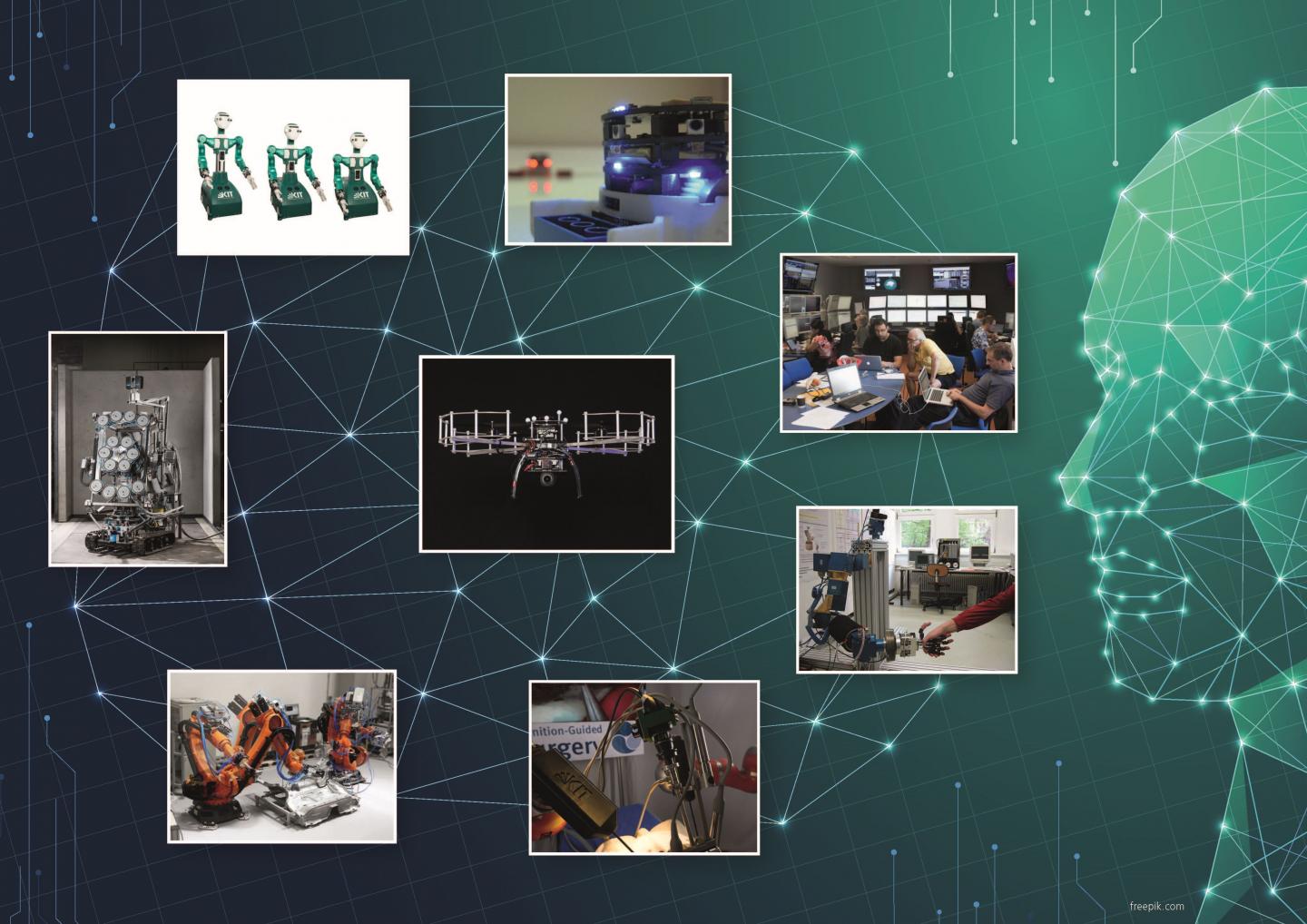Researchers plan to interconnect autonomous machines for joint execution of difficult tasks in the deep sea or on Mars

Credit: Graphics: Theresa Lösch, KIT
The Seven Samurai, the German pioneers of banana kicks in football Manni Kaltz and Horst Hrubesch, the Rolling Stones, or Marvels Avengers – whether in fiction or reality: high-performance teams can master challenges and achieve goals a single individual cannot reach in spite of outstanding capabilities. Researchers of Karlsruhe Institute of Technology (KIT) and other research institutions now plan to transfer this finding to robotics and to use specialized robot teams to explore the deep sea or remote planets.
“Autonomous robot networks will be a key technology in future,” says Michael Flad, Head of the Cooperative Systems Group of KIT’s Institute for Control Systems (IRS). Within the ARCHES project, researchers of KIT and their partners want to build and mutually adapt robot teams that are to autonomously set up equipment or take samples in hostile environments, e.g. on Mars or at the bottom of the sea.
Swimming or flying drones are to identify locations suited for the equipment or studies planned, while other units are to go there and to load, bring or transport material. “For such tasks, we need robot systems with a wide range of skills,” Flad points out. For instance, they have to be able to grasp and manipulate objects unknown to them, to adapt to changing surroundings, and to distribute and coordinate tasks in a team. Apart from reliable algorithms to pool and coordinate information, also interfaces are required, via which the human operator and the robot team can jointly plan and coordinate their mission.
Flad thinks that the technologies developed within ARCHES can also be used for autonomous driving or in logistics and transportation. Here, a wide range of applications exists for machines that coordinate their tasks on their own and act jointly. Special robot systems are already used in goods traffic for e.g. unloading container ships. But these systems can only move in known environments and are not able to respond to unforeseen events. “Without any cooperation between these autonomous systems and an interaction of these systems with a human being, who will continue to be an actor in this setting for the medium term at least, automatic driving will neither enhance traffic safety or comfort nor save time,” Flad says. Heterogeneous robot teams might also be used to support relief workers in disaster areas or when dismantling nuclear facilities.
The KIT institutes involved in the ARCHES project funded by the Helmholtz Association are the Institute for Control Systems (IRS), the Institute for Anthropomatics and Robotics (IAR), the Institute for Technology and Management in Construction (TMB), and the Helmholtz Programme for Nuclear Waste Management, Safety, and Radiation Research (NUSAFE).
The project partners are the Alfred Wegener Institute Helmholtz Centre for Polar and Marine Research, the GEOMAR Helmholtz Centre for Ocean Research, and the German Aerospace Center.
###
More about the KIT Information · Systems · Technologies Center: http://www.
Press contact:
Dr. Felix Mescoli, Pressereferent, Tel.: +49 721 608 48120, Fax: +49 721 608 2117, [email protected]
Being „The Research University in the Helmholtz Association”, KIT creates and imparts knowledge for the society and the environment. It is the objective to make significant contributions to the global challenges in the fields of energy, mobility and information. For this, about 9,300 employees cooperate in a broad range of disciplines in natural sciences, engineering sciences, economics, and the humanities and social sciences. KIT prepares its 25,100 students for responsible tasks in society, industry, and science by offering research-based study programs. Innovation efforts at KIT build a bridge between important scientific findings and their application for the benefit of society, economic prosperity, and the preservation of our natural basis of life.
Media Contact
Monika Landgraf
[email protected]
49-721-608-21105
Original Source
https:/



